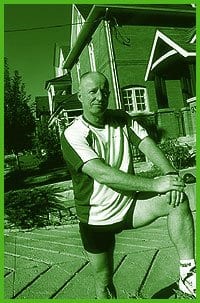Pro? Con? Immoral? Loving? Tradition? Change? – the frenzy over same-sex marriage has played out ad nauseam in the media in recent months. Has this attention been good or bad? Has it rejuvenated gay activists? Has it galvanized the religious right and made politicians fearful for their political lives?
The controversy is about more than teachings or even marriage. It is really the churches’ unease with the broad spectrum of human sexuality. How do gay men who are religious reconcile faith and their churches’ position on homosexuality?
Recently, I met six middle-aged men who worship at St. John’s Anglican Church on Elgin Street, well-known for being gay positive. The Church has struck a task force to look at the issue of blessing same-sex unions. It has come about as a result of a motion presented to the diocesan synod last year asking them to bless same-sex unions. A counter-motion was put forward by traditionalists. As a compromise, the matter was deferred for further study and the taskforce was asked to create materials to facilitate wider discussion.
“Typically Anglican – sitting on the fence,” shrugs Ron. “Anglicans do try to find the middle ground. As with society, you get divisions within it.”
For these men, some of whom were previously married before coming out, marriage between same-sex couples is an important issue.
“For me, my marriage ceremony was a high point,” explains Tony. “It was celebrated in front of the larger supportive community. To be able to marry in church the man with whom I have had a relationship these past 20 years would sanctify our relationship.”
How, I asked them, could the Anglican Church do this when the Lambeth Conference, a worldwide assembly of Anglican bishops, decreed that while welcoming homosexuals, it does not condone sexual relations between gay men and between lesbians?
They quickly pointed out that the Lambeth Conference does not make decisions for individual churches. Its positions have no moral or legislative authority.
“For many heterosexuals,” Steve says, “homosexuality is simply genital. The truth is a homosexual is a homosexual whether or not he is celibate.”
Yes, I continue, but if church leaders are confirmed in their belief that sexually active homosexuals are immoral and evil, why continue to practice that faith?
“Religious rights and civil rights now overlap,” Ron counters. “Long-held societal models are disintegrating. The vocal minority within the various churches and society feels threatened, under attack. People fear the whole house of cards is tumbling down. At St. John’s, the congregation tends to social justice issues.”
When I spoke to Tom, a devout Catholic, he was upset about the language the Vatican used in speaking out against same-sex marriage, against gay families, against homosexuality. But he is uncertain whether he would ever marry.
For him, belonging to a parish is about inclusiveness, belonging to a community. The Church, he fears, is fanning the flames of hatred. And he cannot accept this.
“Ultimately, it is a matter of conscience,” he tells me. “The Church can provide guidance but I cannot go against what I believe in good faith is right. There are things you don’t like about your work, or about your family, but you don’t abandon them.”
Frank is another devout Catholic. Although he is out and is active on his parish council, his questioning of the church on sexual matters began when he was married.
“As the Church was against birth control, I had two children close together. This did not seem right to me. When I finally accepted I was gay, it was a similar process of not accepting what the Church preached.”
He pointed out that his own church is gay-positive and has established a faith-sharing group that is composed equally of gays and lesbians and heterosexuals. However, when asked, he replied that the issue of same-sex marriage has not been discussed.
For himself, marriage is not important. He and his partner have all the benefits of any common-law couple. On the other hand, a civil ceremony, should he choose to marry, would do nothing for him. Marriage should be an option for those who want it, he stressed.
What, I asked, about different Catholic bishops’ reactions, which were widely covered in the media, including the Ottawa Archbishop’s letter to the Prime Minister?
He pointed out that the bishops’ reactions across the country varied. Some are reasonable, have even said there is value in loving same-sex relationships. These did not issue letters to be read out during mass. Priests, he says, who do not agree with the view of the Vatican can choose not to speak out.

 Why you can trust Xtra
Why you can trust Xtra


